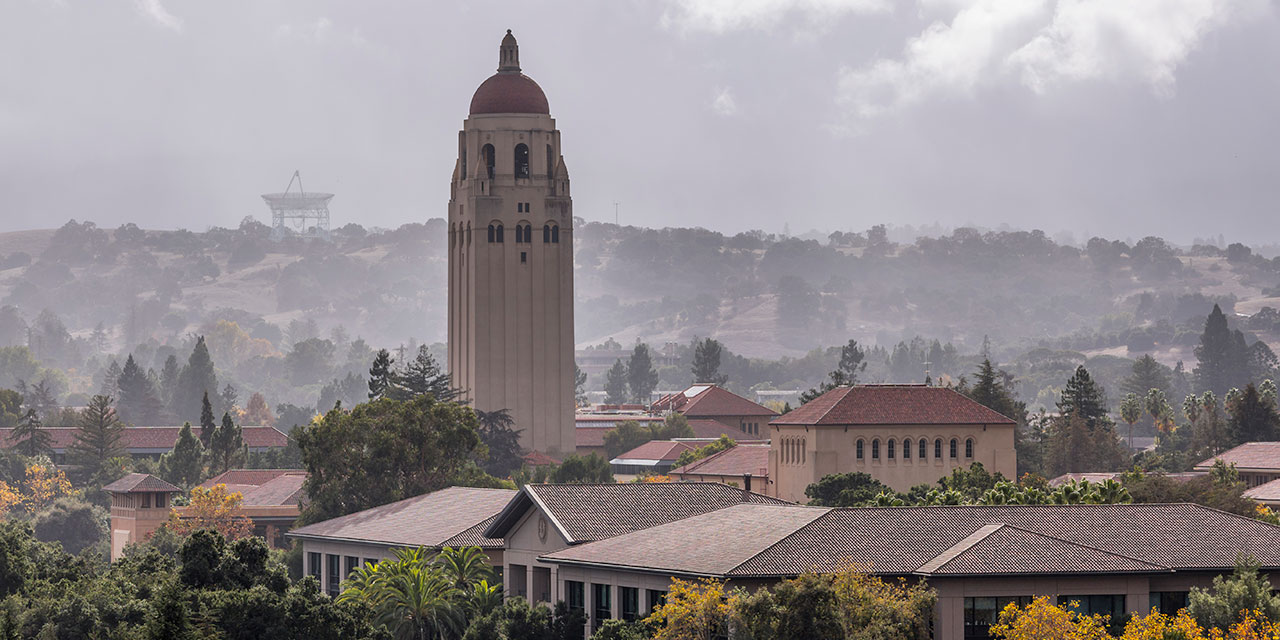
Graduate students enroll to teach, do research, and pursue knowledge, not to be conscripted into political organizations. Yet at America’s top universities, a new model of progressive campus unionism is rising—one that prioritizes progressive activism over workplace concerns like wages or benefits and coerces students into bankrolling causes many find deeply objectionable.
At Stanford University, the Graduate Workers Union—a local affiliate of the United Electrical, Radio and Machine Workers of America (UE)—has demanded the dismissal of teaching and research assistants who refuse to join or pay union dues or agency fees. In June, students who had not paid them, including myself, received an ominous email titled “Termination Request” from union leadership, urging administrators to fire graduate workers for nonpayment.
Rather than defending student choice, Stanford promised—in a 2024 collective-bargaining agreement that it signed to avert a strike—to treat union membership as a condition of employment for teaching assistants and research assistants. Because California is not a right-to-work state, the contract now makes union membership or fee payment a condition of employment. That means Ph.D. students can’t teach or conduct funded research unless they subsidize the union.
The majority of union dues collected by the student union go to the national body, whose agenda extends far beyond typical concerns like wages or hours. The UE, for example, was the first national union to endorse the Boycott, Divestment, and Sanctions (BDS) campaign against Israel in 2015. It also advocates for defunding police, taxpayer subsidies for “gender-affirming care,” and other controversial causes. Its website prominently features a “political action” tab highlighting protests and lobbying campaigns like the anti-Trump “No Kings” protest.
Objectors have a few legal outs, but these lack teeth. Federal law technically allows graduate students to opt out of full membership by paying “agency fees” under the Supreme Court’s Communications Workers v. Beck (1988). However, those fees are nearly identical to regular dues and still end up in union coffers.
Another path exists for religious objectors under Title VII of the Civil Rights Act. The trick here is that what constitutes a genuine religious accommodation is often left up to the union (though the law states that a university can decide as well). In practice, Jewish students troubled by BDS have faced resistance, because the union sometimes classifies this as a political objection rather than a religious one.
Stanford is not alone in the politicization of its graduate workers’ union. MIT’s union, also affiliated with UE, has faced disputes over religious objectors and dues/agency fee allocations.
But perhaps the most revealing case is at Cornell. There, Jewish graduate students filed federal charges with the Equal Employment Opportunity Commission, alleging that the Cornell Graduate Student Union (CGSU) and UE had violated Title VII by subjecting them to invasive questionnaires when they sought religious exemptions from dues. Objectors were asked to name their houses of worship, describe their beliefs, and provide extensive documentation (Title VII requires only a sincere statement of faith).
Cornell’s administration eventually intervened, withholding dues disbursements to the union for six weeks this summer. University officials criticized the union for failing to communicate clearly on students’ rights and for using a “short form” follow-up questionnaire.
The conflict culminated in a July settlement. The union agreed to recognize not only religious but also moral and ethical objections, to end the intrusive questioning, and to allow objectors to redirect equivalent payments to one of three charities: the United Way, the American Heart Association, or the American Cancer Society.
The Cornell affair underscores the dangers of ideological unionism in higher education. Graduate students, already living on modest stipends in expensive cities, should not be coerced into funding political activism that offends their conscience, or engage in prolonged legal battles to secure an exemption. Nor should they be forced to navigate labor-law fights and political conflicts far removed from their scholarly work.
At the University of Chicago, students are suing their union, arguing that Janus v. AFSCME—a 2018 Supreme Court case that struck down mandatory dues for public-sector workers, thus overturning Abood v. Detroit Board of Education (1977)—should apply to them, as well.
These issues raise broader questions about the state of American higher education. By agreeing to making union membership and agency fees a condition of employment, are universities compromising their ability to commit to political neutrality and academic freedom? And who should be covered by union agreements? Should they include visiting students involved in research? What about students who are on stipends but not working in research or teaching capacities? At Harvard, administrators recently reclassified 800 fellowship-funded graduate students as non-employees, excluding them from the bargaining unit altogether.
The legal status of student unions remains unsettled. Are graduate students truly “employees,” as unions claim, or apprentices receiving training and stipends? Harvard’s reclassification suggests the latter. If courts ultimately agree, compulsory unionization could be curtailed across private universities. Cases now emerging at Chicago and elsewhere may provide the test.
To be clear, I’m not opposed to a right to organize and collectively negotiate better wages and benefits. But coercing others to join an enterprise, especially one highly invested in progressive activism outside of standard wage and benefit bargaining, is wrong. In an ideal world, unions legally would be treated like 501(c)(3)s and be barred from political activity and making political contributions.
The stakes are high. Forcing Ph.D. students into ideological unions undermines academic freedom, burdens the poorest students, and turns research training into a battleground for national politics. Universities should resist ceding control of graduate education to organizations that function as political action committees. Legislators and courts should reaffirm that students cannot be compelled to subsidize speech they reject.
For now, many graduate students at Stanford, MIT, Cornell, and beyond face an impossible choice: compromise their core values and beliefs or lose the teaching and research roles essential to their academic careers unless they can find a Civil Rights exemption. These are choices no student in a free academic enterprise should ever be forced to make.
Photo by David Madison/Getty Images















